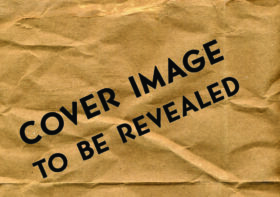What makes you buy (poetry)?
First, a little story about sales.
My first ever job was as a Saturday girl in the Lilley & Skinner shoe shop on London’s Oxford Street. I remember one of my first ‘training’ sessions with the supervisor, in which he told each of us our sales targets for shoes, matching handbags and ‘sundries’ – everything from shoe-trees to spray protector. We were supposed to push them quite aggressively. I asked ‘what if the customer says they’ve already got the spray protector?’ His answer: ‘Tell them it’s new on the market.’ ‘But what if they were here last week and bought this actual same spray protector?’ ‘Tell them it’s new on the market.’
This taught me two things: 1) I was never going to do well in that job and 2) I never, ever wanted to work in sales.
Little did I know that in the 21st century everyone would work in sales, whether we wanted to or not. (Nor did I know that footwear would actually provide the most significant turning point in my life, but that’s another story.)
The problem (still) with ‘sales’ is that we’re bombarded with information about ‘how to sell’. The first question on people’s lips whenever they find out I have a background in marketing is how can I sell my pamphlet/get more people to my readings/increase sales? It sometimes feels as if people are expecting some kind of magic bullet. My answer is invariably that you have to turn the question around.
It’s not a question of what sells, it’s a question of what people buy. And I don’t just mean ‘people buy benefits not features’ – sure they do, but that’s not the whole picture. The real question is, what makes people part with their hard-earned dosh?
Now a sales person will tell you people buy out of fear: fear of missing out (‘buy now before the price increase!’), fear of losing their home/income/possessions/professional standing etc (insurance), fear of feeling inadequate or out of step with peers, fear of their kids feeling inadequate or out of step with peers, fear of feeling left behind/old/different, (probably covers all consumer goods) fear of just about anything that can be painted as negative or threatening to one’s way of life or beliefs, substantiated or not (politics), fear of illness/pain/stress/life – you get the picture.
Of course this is a simplified picture. Fear is the age-old, lazy way to sell. So what are the other reasons we buy? To get into the head of someone who might consider buying your book/pamphlet/services/whatever, look at any similar things you’ve spent your money on recently and ask yourself what motivated you to buy. For example, here’s where my poetry pennies have gone recently:
1) Two tickets for the Poetry Trust Poetry Prom at Snape Maltings in August. My husband is a musician and had been reading a biography of Benjamin Britten. He’d never been to Suffolk, and fancied a short break there to do the Britten trail. I’d heard so much about the East Anglian poetry scene so wondered if there was something we could go to – found the August Poetry Prom, saw it was John Hegley and Ian McMillan, knew it would be something we’d both enjoy. The dates worked. Done deal.
Reasons for buying: reputation made me search for events at Snape, it was serendipity/luck that the dates worked, the poets appearing were known to me as being accessible for a non-poetry audience, and good seats were available at a fair price. If the price had been higher we would still have booked, because all the other factors made this event very attractive. Price is often seen as the most decisive factor in determining sales, but sometimes its role is negligible.
2) A copy of Jeremy Page’s new collection Closing Time (Pindrop Press, £9.99).
Reasons for buying: I was at the launch event and know Jeremy (we live in the same town and are both involved in the Needlewriters) – so I suppose you could class that reason as personal connection/loyalty, plus I also know Jo Hemmant of Pindrop Press. All the same, it’s hard to support every writer you know or always buy a copy if you go to a launch – it can get a tad expensive. There were other factors – I enjoyed Jeremy’s reading and was genuinely curious to read the whole collection, the book also looks and feels attractive and I’m a sucker for excellent production quality (more of this later). The price also seemed fair. It’s rare that I find a poetry book over-priced, to be honest, have you?
3) A donation to Cinnamon Press (£10). I wanted to mention this because I think asking for donations is both an under-utilised tactic but also requiring very delicate navigation. You could write an entire blog on the subject but I just want to offer up one example. I was browsing the Cinnamon website and followed a link to ‘Cinnamon Friends.’ You can visit this page to find out more, but basically two Cinnamon authors have got together to help fundraise for the press, so it can ‘stay innovative, independent and sustainable’. How wonderful is that? Not only does it say to me ‘this is a press that clearly values and supports its authors in such a way that they want to give something back’, but the language of the page does not cajole or make the reader feel guilty or anxious.
Too often, we’re told that a poetry press can only survive if we all buy more of its books and help prevent it going under, or the owner of the press has sold their house/children/life for the cause of the press and the least we can do is to buy one damn book... I am sympathetic, truly! But does it feel good to buy out of guilt? Not for me. I’m after that sense of well-being that comes from giving willingly, from helping people who are doing a great (tough) job but not asking me to feel bad that it’s a struggle. I want to feel my donation (however small) makes a difference – but I need to be shown that, not told it. I want to feel special in some way, not a person on a mailing list. It’s the kind of thing that large charities, for example, can sometimes get wrong.
Reasons for the donation: I was impressed with the initiative, the page oozes a gentle confidence and I was made to feel my donation would be genuinely appreciated, I was offered many different ways to donate/support and it was quick and easy. I was also in a good mood and probably thinking about my own foray into publishing and how nice it would be to get a donation out of the blue. I haven’t been pestered for more, but I did get a personal thank you, all of which makes me inclined to do it again. You could say my reasons were that it felt good, I liked what it said about the press, it was easy to do and the timing was right.
4) A copy of the Little Magazine issue 1110 from Miel. No, I hadn’t heard of Miel either – I followed a link from someone’s tweet – so quickly I can’t remember who it was – singing the praises of something she’d just got in the post from this Belgian outfit and how beautiful it was. The stationery/letterpress geek in me was getting excited as I explored the site, and almost bought a chapbook as well as the mag – until I realised with the shipping costs it was a bit extravagant. So I just went for for little mag, and can’t wait to have it in my hands.
Reasons for buying: the promise as presented on the website appealed to me (lovely production/paper/print), the serendipity of the unknown, I was curious about it and it was fairly low risk (10 euros). It was an impulse, the kind that has often paid off in the past.
This has been a long post – thank you for staying with me. I’m interested to know what makes you part with your poetry money – do you respond to the guilt thing, and how does it make you feel? Do you agree that personal connection is a huge factor? Is it terribly shallow of me to be affected by the production quality of a book? What do you think about asking for donations (a huge area I know)? Do you agree that key to making sales is at least trying to understand people’s motivations for buying?



It’s interesting that you haven’t mentioned the character or quality of the writing – perhaps that’s taken as read. There are very a few poets I will buy almost anything by. Sometimes I’ll buy on the strength of a review or a few sample poems. And although Brighton (where I live) does relatively well for bookstore poetry, it’s been a while since I bought a book by a new author just through browsing.
I will very often buy books at readings. I don’t feel guilt tripped at all, possibly because I generally don’t know the authors. Extreme self-promoters are a different matter. They’re tiresome, but thankfully rare in person. Online, I’m hugely put off by five-star Amazon reviews packed with superlatives that no book could plausibly live up to.
I love well made books, but on the whole it’s the content that matters. But if I’m buying a book as a gift, it’s better if it’s beautiful.
Ah yes, quality of writing – I’m interested that you’re more likely to buy from a voice you know and trust to be good, rather than taking a punt on something you’ve come across when browsing. As for the superlative reviews, I guess they’re a bit like cover blurbs – one takes or leaves them with a pinch of salt.
I agree that I’ve also bought occasionally on the strength of a review, but again it’s usually a review by a person who I trust and who I think likes the kind of stuff I’m going to like. So hugely subjective in poetry (I think) isn’t it? Also I find poems grow on me, so that very often something I bought with initial enthusiasm isn’t the book I go back to, and vice versa. And I’m glad you agree the look of a book does sometimes have an effect on the buying decision, even if only when buying something as a gift. Thanks for your comment, Tim.
I think I wasn’t quite clear about the browsing thing. It’s not at all that I prefer what I know, it’s that the experience of discovering something new has moved from the bookshop to the internet. ‘Browsing’ probably wasn’t a good choice of word…
I’d agree that poetry is hugely subjective, but it’s the poetry that matters, not (so far as I can help it) the marketing or packaging. I think many contemporary poetry publishers have incredibly high production standards. And that’s great – I’d rather my friends lived in a glade than a garbage can. But I like to imagine I’d visit them wherever they happened to be.
Fundamentally, I’m looking for poetry that spooks me, that changes the temperature in the room. Poems that make their own oxygen (that’s how you tell them from prose).